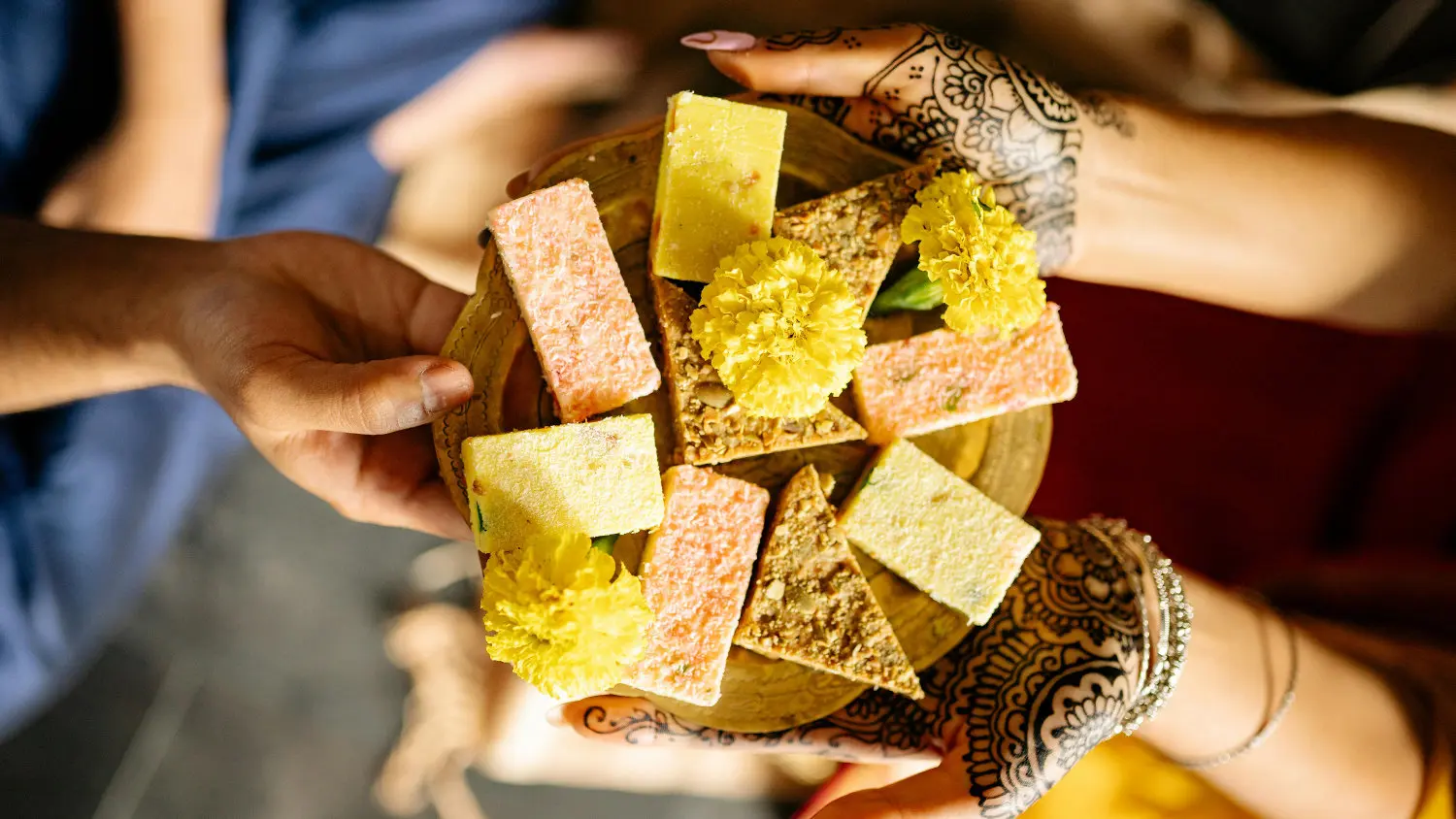Diabetes and Indian festivals – Balancing health and celebration

In India, festivals are a time of celebration – Savouring sweets, enjoying delicious food, and being surrounded by loved ones.
The air is filled with the delightful aroma of fried snacks, sweet mithais and spice, bringing a special joy beyond just decorations and lights. Growing up in Kolkata, food was always the centre of any celebration, especially in my family. But lately, as someone living with type 2 diabetes, I find the festive atmosphere bittersweet. I constantly struggle with my love of food and my need to manage my health.
And in my household, diabetes is something we all have to deal with – Not only am I type 2 diabetic, but so are my 70-year-old father and my 68-year-old mother.
Our home is cosy and rich in love as well as tradition, but there’s a subtle tension as we try to balance our health and cultural celebrations. Living with diabetes, our health considerations are woven into the fabric of our daily lives. It shapes our day-to-day routines, as well as how we celebrate important occasions.
The charm and emotional challenge of sweets
Of all the Indian festivals, Diwali is especially well known for its sweets. In the lead-up to it, my mother used to spend days preparing an array of laddoos, barfis and gulab jamuns. I still remember her stirring batter, the fragrance of ghee wafting through the house. And those strong childhood memories remind me of a time when I could indulge in all the sweets I wanted without a second thought.
But after I was diagnosed with type 2 diabetes, my carefree enjoyment of sweets became a thing of the past.
These days, seeing sugary treats during Diwali stirs up nostalgia and frustration – I miss the simple joy of eating them, and saying no to my mother’s lovingly made sweets feels like I’m rejecting her affection.
She often chides, “Beta, ek laddoo kha lo, kuch nahi hoga,” – Have a laddoo, it won’t hurt.
And a part of me always wants to indulge and share in the joy. But I know very well that even one laddoo can cause a spike in my blood sugar levels (something no festive mood can remedy).
Many times, my father has had to play the sensible role, courageously reminding my mother and me to check our blood sugar levels and eat wisely. This practical advice creates a bit of a tug-of-war against my mother’s nurturing nature. It’s an unspoken struggle we all feel but rarely talk about.
Finding a healthy balance and choosing alternatives
Over the years of dealing with diabetes, I’ve figured out how to strike a balance – Instead of completely cutting out sweets, I opt for healthier alternatives.
I’ve experimented with desserts using jaggery, almonds or coconut. Initially, my mother was sceptical, asking, “Do these sweets really compare to my traditional ones?” But after a few tries she’s welcomed these substitutes and now even makes diabetic-friendly treats like almond flour halwa and low-sugar kheer.
And as for those festivals with a feast of fried foods and hard-to-resist carb-heavy dishes? To avoid overindulging I’ve started bringing my own light and balanced meals. And before heading out, I eat at home – This helps me avoid the temptation to overeat at parties (which was a major factor for me).
Of course, there are moments when I slip. And whether it’s enjoying an extra piece of dessert at a relative’s wedding or sharing a snack with my parents during a cosy night in, I’ve come to accept that it’s part of the journey. The key is being able to bounce back.
Dealing with social expectations
Being a diabetic in an Indian family means not only facing health challenges but social pressures too. In our culture food is a primary way to express love and hospitality. And saying no to food during a family gathering, especially at a festival, can feel like rejecting someone’s kindness.
I constantly have relatives insist I eat more, saying, “What’s the point of dieting? Just enjoy the celebration!”
At first, I struggled to say no without feeling guilty. Over time, however, I’ve learned to handle these situations with grace – I politely share my health situation, and while not everyone understands, many have respected my choices.
It can be tough, especially when relatives insist on offering food out of love. But I remind myself that my health has to come first. It’s a lesson I’m constantly learning and sharing with those around me, and that’s been the best way to show my friends and family that my health is my life’s priority.
Interestingly, being open about my diabetes has led to meaningful discussions in our family. I’ve seen relatives who were pre-diabetic start taking their health more seriously. And seeing that impact, how I’ve helped someone improve their own health, is one of the most rewarding parts of sharing my journey.
Celebrating beyond food
For me, festivals are now about more than just food – They’re about the experiences we create with our loved ones.
Yes, food plays an important role in the celebration. But there’s so much more to it. During Diwali for example, I now immerse myself in decorating our home, lighting diyas, participating in pujas, and spending quality time with my parents. We play cards, listen to music, and watch old Bollywood films together. And it’s the laughter, conversations and bonds that truly make our festivals special.
It took some time for my parents to fully understand and accept the seriousness of our condition, especially given how intertwined love and food are in our traditions and culture. But now that they have, there’s a deeper empathy at home. We openly discuss how to manage our diabetes during festive seasons, and even my mother, who once thought sweets were harmless, now helps create diabetic-friendly treats for us all.
Looking for more stories like this?
Nirvaanika lives in her family home, where everyone has diabetes (herself and both her parents). She’s found that life can be hard. But also rewarding.
When Lisa’s dad was diagnosed with type 2 diabetes, she suddenly became a primary caregiver. Here are 9 things she wishes she’d known from Day 1.
Joining the workforce, Nirvaanika was keen to climb the corporate ladder. But first, she had to learn how to balance her work and her type 2 diabetes.








